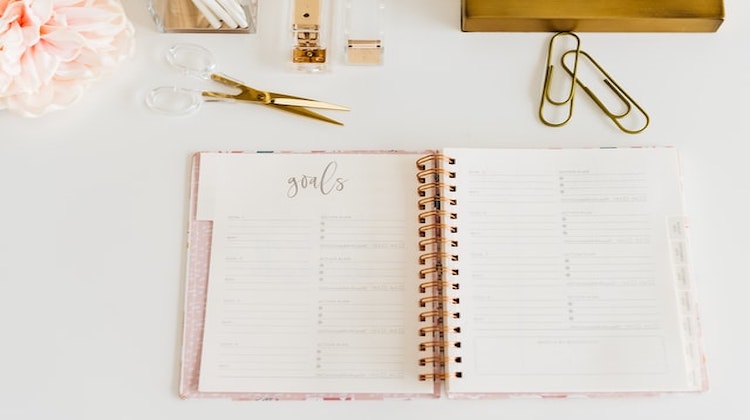'Motivation' is overrated
Don’t get me wrong, you need to be motivated to a certain degree one way or another. But language learning is a process and a long journey, so the sooner we understand that we can not rely solely on motivation and hard work, the better. Trying to do ‘big things’ too quickly will often lead to boredom and disappointment. By all means, dream, have a goal, have a big goal, but use it wisely as I will explain in the next sections.
Break down your goal
Start with your big final goal, for example ‘being fluent in Japanese’. Visualize that big goal like a cloud in the sky, rather than the top tier on the stairs or a ladder. Do not imagine a fixed path towards your goal, but expect your journey to be messy, full of changes and surprises. In a couple of years, your goal may even change, for example ‘being more confident in using Japanese and making friends’ - you never know, stay flexible.
Keep your big goal in the cloud above, start making medium to small plans for the next 3 - 6 months.
You may be tempted to set the time frame in which you will achieve your big goal, but I will be very careful with that as it can easily shift your focus away from what’s really important. I would use a time frame only for more immediate and achievable goals such as ‘learn to read and write Hiragana letters in 3 months.
Keep your goals realistic and achievable
Write up your medium (ie: ‘Be able to talk about myself’) to small (ie: ‘Be able to use some basic greeting words’) goals and think about how you can achieve them. Study with a teacher once a week? Memorize 3 words every day? Watch lots of films in your target language? Again, don’t worry too much about when you would like to achieve them, but really focus on how. We are all busy people with many different responsibilities and commitments, and life happens. Make sure your ‘how’ is meaningful and realistic for YOU. It is not a competition, make a small and truly achievable goal and celebrate your victory more often!
Know your learning style
Everyone is different. As well as writing up plans and actually working on them to achieve your language goals, invest your first couple of months also on finding out your learning style. If you find yourself really not getting along with the ‘memory cards’ method, for example, spend some time researching and trying out different ways; maybe you need more visuals, maybe listening to words helps you to absorb more than reading. Find out what works and is right for you.
Small habits, big results
Hook your language learning habits onto your existing habits. For example, if your morning routine is to make coffee, read a newspaper and shower, squeeze in a few minutes of learning after reading a paper, and do it every day until it becomes a habit. By attaching your new learning habit to your existing routine, your new habit (language learning) soon will become a part of your daily routine; something you do without even thinking about doing it. This way, you will save so much of your brain energy and time that used to be spent on ‘making time’ or ‘finding the motivation’.
Don’t forget to have fun!
Yes, it goes without saying that sometimes you have to pull yourself up and put in some serious hard work to your language learning. Sometimes you have to make that very hard decision of not watching your favorite Netflix show and revise that tricky verb conjugation instead. At the same time, it is also true that the best learning happens when your brain is more relaxed. This all goes back to knowing yourself as a learner. It is more important to be balanced and know exactly when to push and not to push yourself than ticking boxes blindly and chasing that time limit you made for yourself until you eventually burn out.
Finally…
If you hit the wall, look up and find that cloud of your big goal that you made at the beginning of your journey; and remember how it made you excited and happy. Take a rest. Do what you enjoy. Watch that Anime that you love without pressuring yourself to ‘understand’ the dialogues. Go to your favorite Ramen noodle restaurant and enjoy the chat with the Japanese owner without worrying about making errors.
At the end of the day, language is for communication, it is for the human being to connect to one another, and with the world around us.
And remember, when you feel like you are ‘not remembering enough’ or not improving as quickly as you would like to, you are often just forgetting how much you actually know or how far you have come.
What are your language learning tips and tricks? What do you do when you feel ‘stuck’? Let us know in the comments below.
And happy learning!







